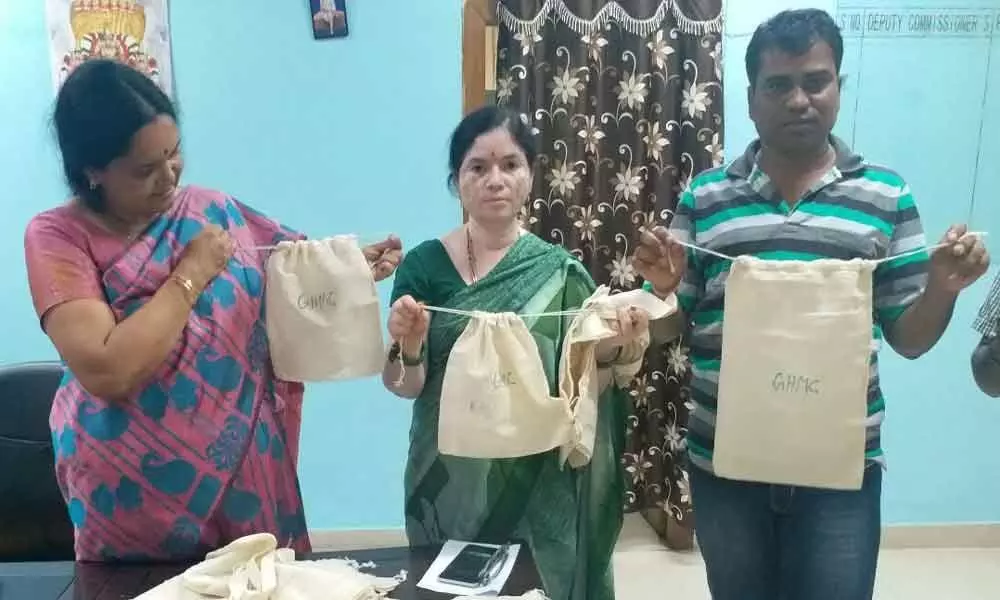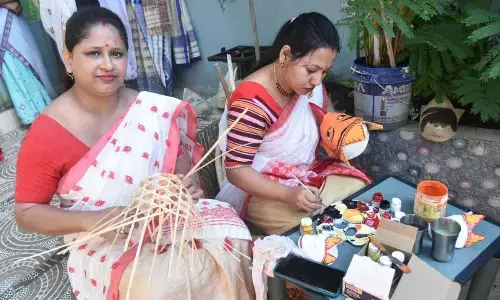Demand for jute & cloth bags moving up in city

The preconceived notion of many is that the plastic ban would snatch livelihoods of hundreds of families, but on the other side, it would also open doors to hundreds of women to make a living through making jute and cloth bags.
Bahadurpura: The preconceived notion of many is that the plastic ban would snatch livelihoods of hundreds of families, but on the other side, it would also open doors to hundreds of women to make a living through making jute and cloth bags.
What is obvious is that the people who are used to carrying polythene bags are being discouraged and people are themselves increasingly opting for the eco-friendly bags. Amid this, the demand for jute and cloth bags has increased in the market to fill the gap created by the imposition of ban on single use plastic.
Seizing the opportunity, manufacturers of jute and cloth bags in the Old City are gearing up to make more bags and raise income levels of workers who are mostly housewives. Small manufacturers Jahanuma and Vattepally are involving more number of household women these days and even allowing some to work from home.
"Considering the intensity of the demand for the cloth bags, we have streamlined the throughput of our workshop to increase productivity," said Abuzar, supervisor of a shop at Vattepally. "However, compared to the speed of machines for manufacturing plastic, the making of jute and cloth bags solely depends on craftsmanship that takes a bit extra time," he added.
On an average, each shop in the city spends at least Rs 8,000 to Rs 10, 000 on purchasing plastic carry bags to give to customers. "It is good that anti-plastic drive is being carried out by various agencies like GHMC and PCB, but implementing it without providing a viable alternate to the polythene bags will not work out," said Syed Wali, a shopkeeper at Shastripuram.

















